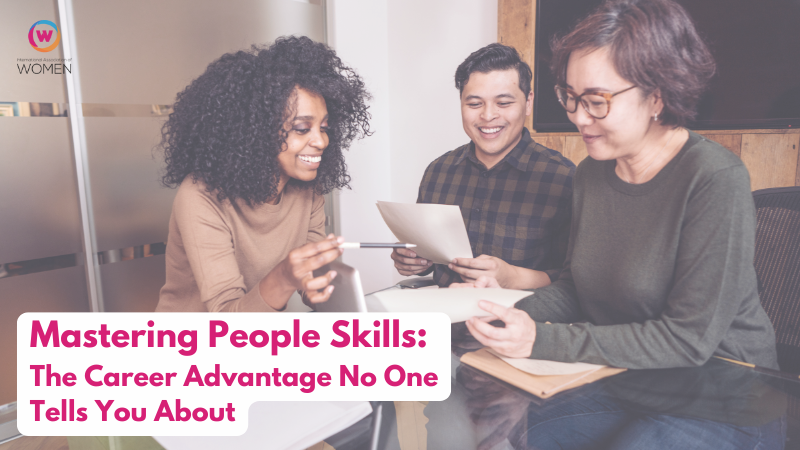When we talk about career growth, the conversation usually centers on technical skills, industry expertise, and a strong resume. These are important—but they’re not the whole story.
Time and again, I’ve seen that the professionals who rise fastest and go furthest are those who’ve mastered something less obvious yet far more impactful: people skills.
Your ability to communicate, connect, and collaborate effectively can make the difference between being passed over and being tapped for your next big opportunity. And it’s not just about networking events or first impressions—it’s about how you show up in every conversation, meeting, and email.
Why People Skills Matter More Than You Think
Every interaction you have reflects your personal brand and, by extension, your organization’s brand. People may not always remember the exact words you said, but they will always remember how you made them feel.
Strong people skills can:
- Turn a casual conversation into a career-changing connection
- Build trust quickly with colleagues, clients, and leadership
- Diffuse tense situations before they escalate
- Position you as a leader others want to follow
Unfortunately, many professionals only realize the importance of these skills when they hit a plateau. They see others with similar technical abilities advancing more quickly—and often, the difference comes down to how effectively those individuals engage and inspire others.
Insights from Julie Jones, Chief Encouragement Officer
IAW Influencer Member Julie Jones, founder of Today’s Professionals Consulting & Development, has spent her career helping individuals and organizations elevate their people skills. She believes this is one of the most overlooked competitive advantages in the workplace.
Julie’s top five core people skills every professional should develop are:
- Active Listening – Truly focus on understanding, not just responding.
- Clear, Respectful Communication – Express your ideas with confidence while considering your audience.
- Professional Etiquette – From meeting behavior to email tone, details matter.
- Adaptability – Adjust to different personalities and situations without losing your authenticity.
- Relationship-Building – Nurture connections before you need them.
Her approach reinforces something I see across our IAW community: technical expertise may get you noticed, but people skills keep you relevant and respected.
How You Can Start Strengthening Your People Skills Today
- Pause before responding. Give yourself a moment to consider tone, timing, and clarity.
- Be fully present. Put away distractions and focus on the person in front of you.
- Ask for feedback. Invite colleagues to share how you can improve in communication and collaboration.
- Practice outside your comfort zone. Volunteer to lead a meeting or join a cross-functional project.
Small, intentional actions add up—and before long, you’ll find that opportunities start coming to you instead of you chasing them.
The Takeaway
Technical skills open doors, but people skills build lasting influence. They help you earn trust, strengthen relationships, and become the professional others remember—and recommend.
If your team or organization is ready to level up in this area, connect with Julie Jones to bring enhanced people skills, stronger communication, and lasting workplace impact to your people.




